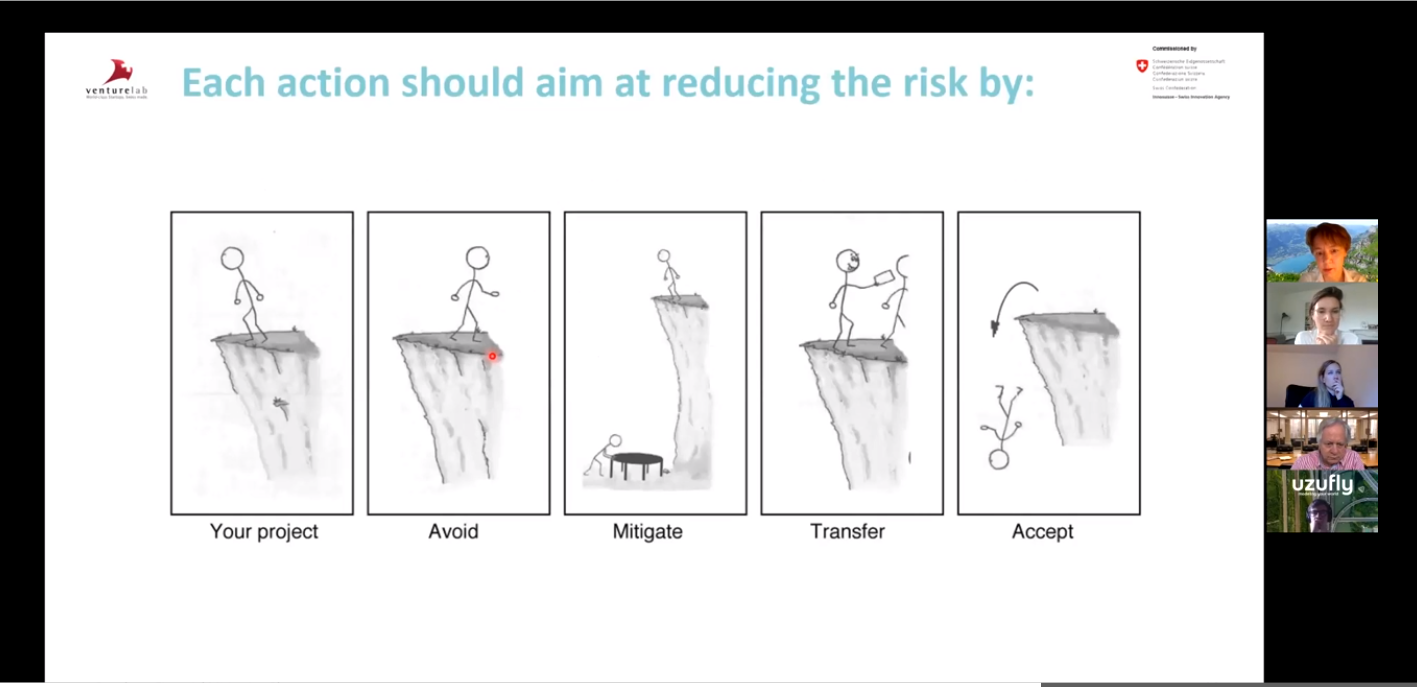Venturelab’s new web series supports entrepreneurs with business-focused advice to help them succeed in the startup world. The topics of the short but hands-on online presentations range from market analysis to financial planning to PR strategies. The web series kicked off this week with SwissBorg Founder and CEO Cyrus Fazel’s introduction to leading a team remotely.

SwissBorg is a fast-growing wealthtech startup that offers Swiss-made crypto investment solutions to the world and recently launched the SwissBorg app, which allows anyone to easily invest in crypto assets. With offices in five countries and more than 70 employees working from around the world, the SwissBorg team has been living and breathing decentralization by collaborating remotely for years.
Cyrus Fazel knows that remote work is challenging: Communication might be slower because of time zones, language barriers, and cultural differences. Feeling like a team and getting to know each other outside of the meetings or calls can feel impossible. However, over the years, he and his team had to find and refine solutions to remain as effective and efficient as possible—despite the distance.
Here are the best SwissBorg-tested tips for setting up an effective and efficient remote-work structure.
1. Define and live strong core values
SwissBorg’s values build the foundation for all activities, and Fazel makes sure that all employees know their purpose. People need to believe in and live the core values to collaborate and make the SwissBorg vision a reality.
2. Hire the right people and give them clear objectives
SwissBorg hires people whose talents and strengths complement each other so that all teams can grow together and succeed. Making sure that employees have clear objectives and to-do lists is critical when working remotely. Quick daily meetings help to ensure that people and goals are aligned.
3. Find tools that promote productivity and socializing
All startups and teams need to find tools that work best for them. At SwissBorg, Trello, Slack, Google Drive, Google Hangouts, and Zoom make sure the workflows and communication run smoothly. However, socializing is critical as well, and SwissBorg makes sure that all employees have fun, get to know each other, and feel connected—no matter where they are located. Tools like Kahoot! and Donut, and online games like Pictionary, help motivate people, bring them together, and strengthen the teams. At SwissBorg, employees get rewarded with tokens not only for the work they do but also for participating in games and social events. For Fazel, social activities promote leadership skills and should be incentivized accordingly.
4. Meet in person
No matter how sophisticated the tools are and how much a team has refined their workflows, meeting in person is critical. SwissBorg’s entire team meets up face to face at least twice a year for a week or more. “We are not in the matrix, we need human relationships,” explains Fazel.
5. Working remotely in times of COVID-19: be patient and structure your workdays
Because of COVID-19, many startups had to start working remotely without a lot of lead time and resources. Fazel knows that this can be tricky and wants everyone who works from home to know that productivity can fluctuate and be different from the regular workdays. It will take time to get into a flow, and the daily structures and schedules need to be flexible to make sure that everyone can be productive—and still has time to socialize. Fazel emphasizes that online meetings are important but can be more exhausting than offline meetings—and they generally work better with fewer people.
Besides finding tools that help with project planning, communication, workflow, and productivity, Fazel encourages anyone new to remote work to structure their work hours. A helpful method to organize your workday can be the Pomodoro Technique, where you break down a task into intervals, which are traditionally 25 minutes long and separated by short breaks.
Getting into the right mindset and setting up a physical workplace can make all the difference: He talked to the webinar participants from his living room and explained that during the week, the living room is his office, and on weekends, he rearranges the furniture to turn “the office” back into the living room. For employees who do not have a separate office, moving a table, rearranging chairs, and putting away laptops on Friday evening can create physical boundaries that help make sure they do not feel like they are “at work” all day, every day.
Five more webinars to support entrepreneurs
For Julia Bory, program manager at Venturelab and organizer of the webinars, the presentations are a great way to gain new insights and learn from experts: “This series of online events allows to quickly exchange with experts and business people such as Cyrus. We aim to keep it as interactive as possible and engage our participants in the discussion.”
The web series includes five more webinars. All presentations are free, and after signing up, all participants will receive a link to a Zoom meeting.
Strengthen your Supplier and Client Relationships (27.4. 2020, 15:00-15:45)
Perfect your market analysis online (30.4. 2020, 15:00-15:45)
Develop a financial mitigation plan (5.5. 2020, 15:00-15:45)
Grow your online presence (7.5.2020, 15:00-15:45)
Make your PR writing stand out (11.5.2020, 15:00-15.45)








1.png)